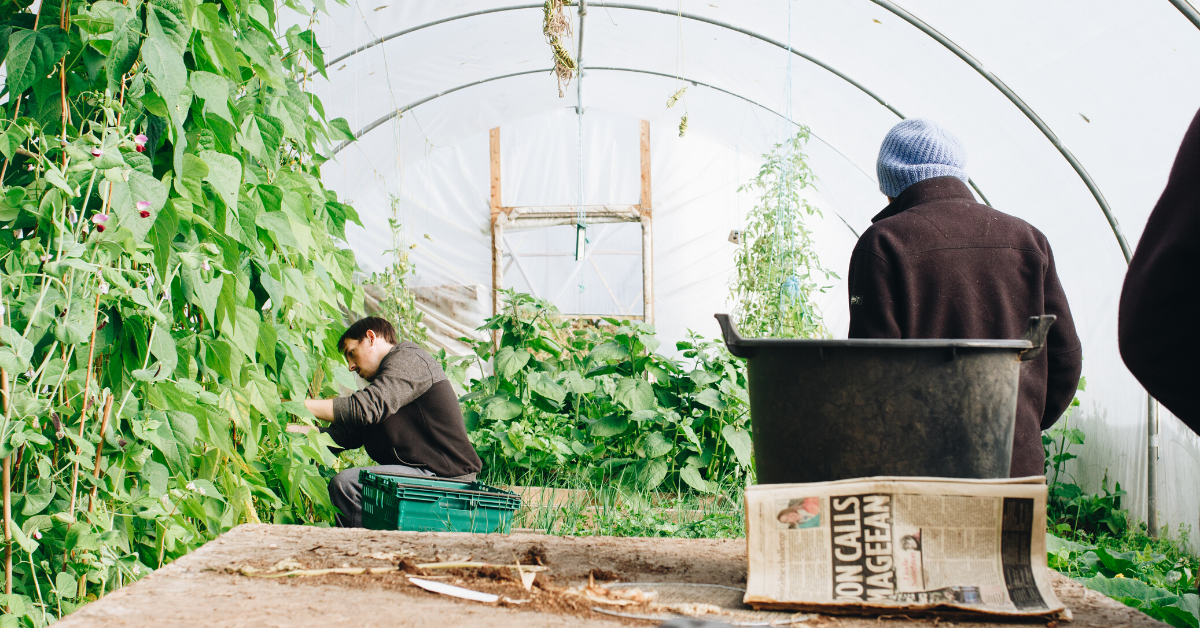
WHAg Window – giving a view from our perspective…..
You don’t have to be an organic farmer to farm for health but organic farming and biodynamic farming are the only farming systems which are built on a concept of health – in principle and in practice. “Regenerative” isn’t, nor is agroecology, or “agricology”, nor “pasture fed, or “holistic grazing” and nor are the various versions of “nature-friendly farming”.
All of these approaches have things to commend them – some more than others – and the farmers following these methods should be given credit for breaking out of the conventional mould. These approaches are all concerned with some aspect/s of health on which they focus, which is why organic farmers are often – if not always – involved in them.
But they are not systemically built on an underpinning and overarching concept of health which determines how the whole farm is managed from soil, to plant and to livestock and then how the product of that farm is harvested, stored, processed, packaged and sold. All with the aim of securing and enhancing the process of positive health in all of those phases – and in the surrounding ecosystems.
The organic farming vision – ambitious, preposterous and real
This aim is so ambitious that it is almost guaranteed to fail, and in truth there are some poor examples of organic farms in all parts of the world. But there are far more good ones than there are poor ones.
Some might say that this ambitious aim became a preposterous one when organic ideas began to spread and sought to take root in a wide range of ecosystems and social conditions around the world. But organic farming is found thriving in far more countries, in all parts of the world, than not – and in most of them it has been grown from the grassroots by an alliance of farmers and citizen consumers.
Others have argued that this ambitious and preposterous aim became well-nigh impossible when the organic movement began to evolve into an organic sector and became involved in a regulated global market.
And in part they may be right because there are examples of dire regulation which shame the organic vision and concept but there are also good examples, in many parts of the world, where regulated organic production provides consumers with healthy food they can trust, gives farmers a consistent and reliable market and the confidence to seek to farm for health.
Whatever its problems, downsides and challenges no other farming system – conventional or alternative – provides systemic positive health in soils, in plants, in animals, in the food produced, and in the environment and ecosystems in which it is based in a consistent, wide-ranging way across the globe. It is no accident that whenever “sustainability” of farming, or the quality of food, or the value of farming methods for health of soil and livestock are assessed, it is organic farming which is always referenced.
Celebrating organic farming
So, whilst we at Whole Health Agriculture recognise the challenges facing the organic sector and are aware of the benefits of other farming systems and are conscious of the skills of many non-organic farmers, we strongly believe that we should celebrate organic farming during this “Organic September” – and every other month of the year.
Here’s why:
Organic farming is built on the concept that the health of soil, plant, animal and man is one and indivisible. This is the truly wholistic concept of the process of positive health management which we believe is the basis of whole health agriculture. This concept is at the heart of the organic principles (health, ecology, care, fairness) from which day-to-day practices flow.
In practice, organic farms have for decades been delivering demonstrable benefits all around the world to the farmed environment, wildlife and biodiversity, livestock, food quality and health. Faced with the problems of climate change and finite resources, biodiversity loss and pesticide and diet related ill-health it is clear that organic farming can make a massive contribution to tackling these problems.
Although research evidence is hard to gather in complex living systems the evidence for the benefits of organic farming is now mounting to the point where it is hard for even the most critical commentator to dismiss it. One of the heartening things about this Organic September is the positive tone with which the media has generally responded.
Thinking about the farm as more than a collection of enterprises
Of course, there is still a good deal of misinformation around, from both pro and anti-organic commentators – and especially over questions of soil, food quality and health. We will pick up on some of these things in the future.
Over the years I have known many organic farmers and organic farms. I have watched closely and supported conventional farmers in their conversion to organic systems and in their journey of discovery about the intricacies of organic farming and whole farm health. Almost all of them have found this journey satisfying and would never return to farming conventionally.
One of them, the late Ed Goff – a conventional dairy farmer who started his conversion to organic farming in the mid-1980s – was adamant that he would never return to conventional farming. When asked why not, he paraphrased the philosopher Descartes in reply, “I think, therefore I farm organically”.
That is not to suggest that conventional farmers don’t think. What Ed meant, was that when you begin to see how the process of health is enhanced in whole farm systems, you begin to think through how to manage that farm as a whole and not as a collection of enterprises. You start to think wholistically (not that he would ever use the term) and organically.
Lawrence Woodward

About the Author: I’m the chairman of WHAg, founder and director of the Organic Research Centre (ORC), and regularly advise & speak about the principles and methods of organic agriculture.







